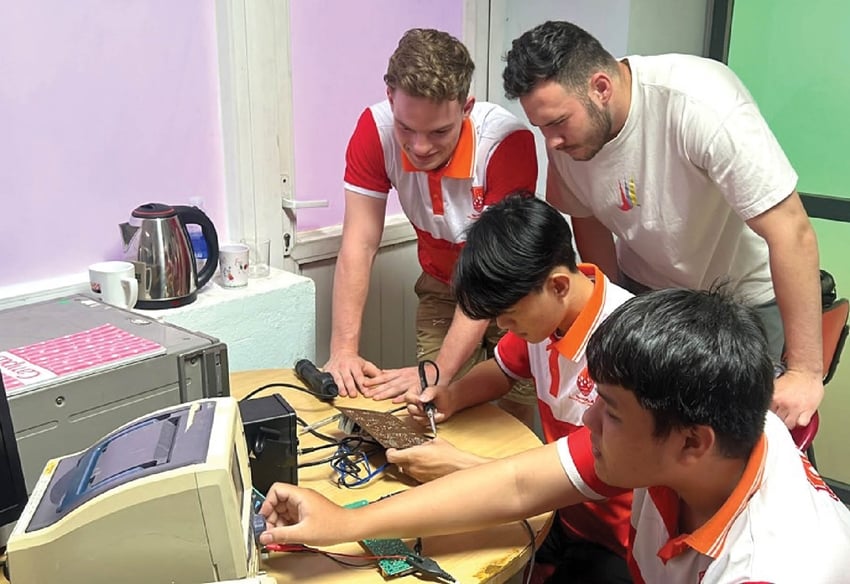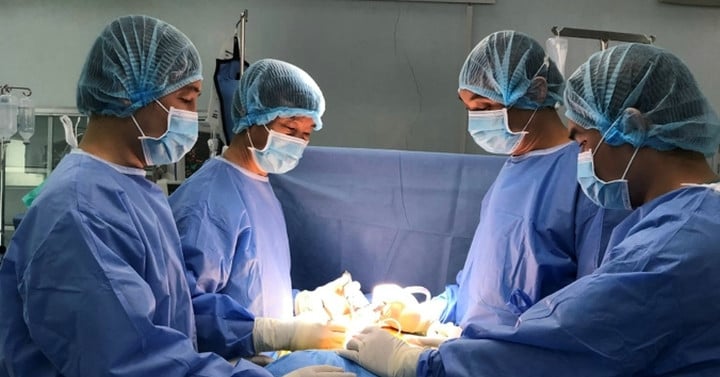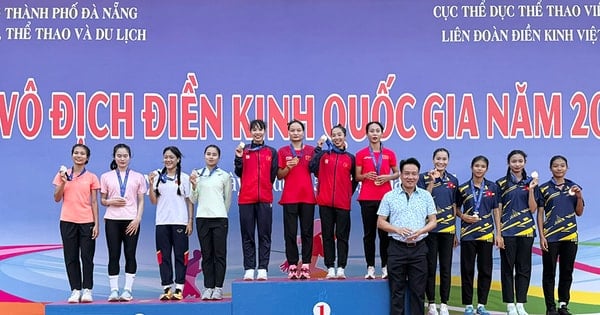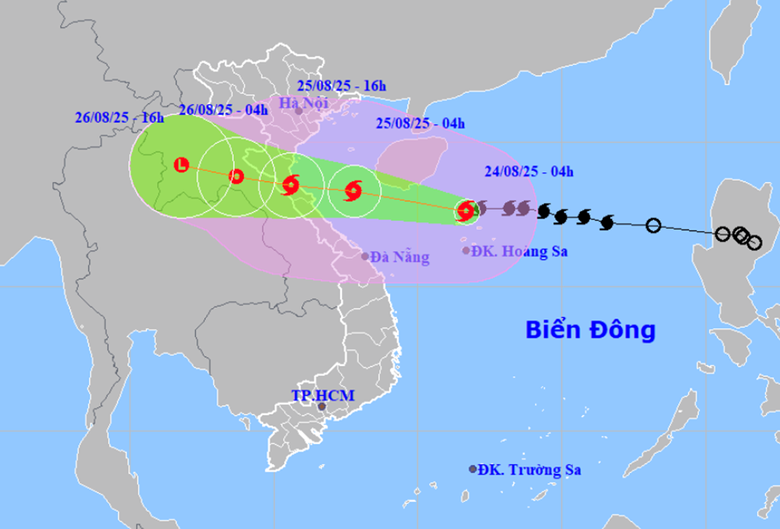Opportunity
The semiconductor industry is one of the important industries with high value and plays a central role in the current 4.0 technology revolution. In 2024, the world sold more than 1 trillion semiconductor chips, higher than all other types of technology goods.
According to Dr. Cung Trong Cuong, Director of the Hue City Institute for Development Studies, Vietnam currently has many advantages to develop the IT industry; the first of which is human resources. Vietnam has about 70 million people under 35 years old with high learning and self-learning capacity. In recent years, Vietnam has always been in the world's top 10 in mathematics. Moreover, IT development is an inevitable trend globally and Vietnam welcomes this trend quite positively.
Currently, businesses using semiconductor chips in the world tend to avoid depending on chip sources produced in 1-2 countries and territories. Therefore, businesses producing and packaging semiconductor chips are gradually shifting to many countries in Asia, Europe, and North America. This is also an opportunity for Vietnam in the field of packaging, testing, etc.
Vietnam has also put forward practical strategies for the IT industry. Accordingly, the Prime Minister has established a Steering Committee; issued the Human Resource Development Program for the IT industry to 2030, with a vision to 2050; the Strategy for the Development of Vietnam's IT industry to 2030 and a vision to 2050; and Directive No. 43/CT-TTg on promoting human resource training for the IT industry and some core digital technology industries.
At the end of last year, General Secretary To Lam signed and issued Resolution No. 57-NQ/TW of the Politburo on breakthroughs in science and technology (S&T) development, innovation and national digital transformation. This Resolution has created a strong wave, expected to promote the development of the IT industry, and is a driving force for domestic enterprises to invest and develop.
Recently, on February 24, Party Central Committee member and City Party Secretary Le Truong Luu signed and issued Action Program No. 115-Ctr/TU to implement Resolution No. 57-NQ/TW. Accordingly, one of the goals and solutions that the program aims for is to build infrastructure, develop digital technology industry in various fields; attract domestic and foreign talents to research, teach and train to develop high-tech industry; form an ecosystem with centers and production zones of high-tech industry, such as semiconductor chips, microchips, data, artificial intelligence, etc.
Need 3-way cooperation
At a related workshop held in early 2025, Associate Professor, Dr. Nguyen Quang Lich, Head of the Faculty of Engineering and Technology - Hue University, said that Hue City has many potential advantages for development in the semiconductor industry, especially high-quality human resources to become an important link in the domestic and global semiconductor supply chain. Currently, Hue City has a team of lecturers researching and training to develop high-tech human resources. In 2024 - 2025, Hue University opened and recruited 2 more related majors: semiconductor technology at the University of Science and Technology, microchip design at the Faculty of Engineering and Technology. Currently, Hue University has cooperated with a number of major universities in the world such as Minh Tan University of Science and Technology, Thanh Cong University (Taiwan - China), University of Missouri, University of Arizona (USA) ... and committed to output at a number of large companies in the field of microchips and semiconductors in Vietnam, so studying, practicing, student exchange, and job creation have initially had certain advantages.
Associate Professor Dr. Nguyen Quang Lich said that in order to train a team of semiconductor technology engineers to meet the requirements, there must be cooperation from three parties: the State, the University and the Enterprise. In particular, the role of the Enterprise is quite important, they also need to participate in building training programs suitable for the actual work; send experts to teach at universities, create opportunities for students to do internships, practice and create jobs after graduation.
According to Dr. Cung Trong Cuong, the semiconductor industry is a special field. Training human resources for the semiconductor industry requires large costs. Therefore, in addition to support policies to attract businesses, localities need to ask investors and businesses to cooperate with universities. Businesses can participate in short-term training courses for lecturers; exchange and share software for teaching and research. Businesses can also set up laboratories and research centers in industrial parks or at facilities under Hue University and support inviting leading experts in the world to participate in training and researching semiconductor technology. "By doing so, Hue City will have a more sustainable semiconductor ecosystem to realize the strategy of developing the semiconductor industry in the coming time" - Dr. Cung Trong Cuong said.
Article and photos: Song Minh
Source: https://huengaynay.vn/kinh-te/co-hoi-tu-nganh-cong-nghiep-ban-dan-152506.html











![[Photo] Prime Minister Pham Minh Chinh chairs the meeting of the Government Party Committee Standing Committee](https://vstatic.vietnam.vn/vietnam/resource/IMAGE/2025/8/23/8e94aa3d26424d1ab1528c3e4bbacc45)







































































Comment (0)